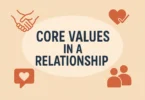Love is meant to feel safe, supportive, and uplifting. But what happens when love turns toxic? When the very person who once made your heart race becomes the reason for your anxiety, confusion, or pain? Many people stay in damaging relationships far longer than they should—not because they don’t see the red flags, but because they’ve been taught that love means sacrifice, patience, or fixing someone else.
But here’s the truth: toxic love isn’t love—it’s emotional chaos disguised as connection. And the longer you ignore the warning signs, the more you lose pieces of yourself in the process. In this post, we’ll walk through the subtle (and not-so-subtle) signs of a toxic relationship, the psychology behind why people stay, and most importantly, how to start choosing yourself again.
Headlines
Understanding Toxic Love and Its Warning Signs
7 Signs It’s Time to Walk Away From a Toxic Relationship
Reclaiming Your Peace and Moving Forward
Understanding Toxic Love and Its Warning Signs
What Happens When Love Turns Toxic
Love is supposed to feel safe. It’s meant to nurture you, support your growth, and bring joy—not confusion, fear, or exhaustion. But sometimes, what starts as passion or deep emotional connection can slowly turn into something harmful. This shift can be subtle at first. It often begins with small compromises that feel harmless, but over time, they chip away at your emotional well-being. This is what happens when love turns toxic.
In a toxic relationship, love is no longer mutual or healthy. One partner may begin to dominate, manipulate, or emotionally exhaust the other. Words become weapons, trust starts to decay, and the relationship feels more like survival than connection. You may find yourself constantly on edge, second-guessing your feelings, or walking on eggshells just to avoid conflict.
Toxic love thrives on emotional manipulation, where control is disguised as concern, and affection is used as currency. You might experience gaslighting—a form of psychological abuse where your reality is questioned, making you doubt your memory, your decisions, and eventually, your sanity. It’s subtle but powerful. Over time, it erodes your self-worth and your ability to trust your own voice.
Another red flag is codependency.
When your happiness depends entirely on your partner’s mood or validation, you lose touch with who you are outside of the relationship. This pattern keeps you stuck, even when you know something’s wrong.
The most heartbreaking part? Toxic love can feel addictive. There’s often a cycle—intense highs followed by painful lows. These moments of affection can feel so euphoric that they make you forget the pain that preceded them. That’s what makes it so confusing. You may convince yourself that the love is real, and the bad parts are just “phases.” But over time, those phases become your new normal.
So when love turns toxic, it’s not just the relationship that suffers—it’s your mental health, your emotional clarity, and your ability to feel safe within your own heart. Recognizing this transformation is the first step toward reclaiming your peace.
How Red Flags Can Lead to a Successful Relationship (and How Green Flags Can Sabotage One)
The Psychology Behind Toxic Relationships
To truly understand when love turns toxic, we have to look beneath the surface—into the psychological patterns that keep people locked in unhealthy dynamics. Toxic relationships don’t usually begin with abuse or manipulation. They often start with chemistry, affection, and an emotional bond that feels real and deep. But somewhere along the way, that connection becomes tangled in fear, insecurity, and emotional control.
At the heart of many toxic bonds is something called trauma bonding—a psychological response that occurs when intense emotional experiences (like intermittent kindness mixed with cruelty or neglect) create a powerful, almost addictive connection between two people. It explains why someone might feel unable to leave a relationship, even when they know it’s hurting them. The push and pull, the highs and lows, mimic emotional chaos from past unresolved trauma, often from childhood.
Another psychological
Driver is attachment style, which forms early in life and plays a huge role in how we relate to others as adults. People with anxious attachment may fear abandonment and cling to unhealthy partners, believing love must be earned through sacrifice. On the other side, someone with avoidant attachment may push their partner away, keeping intimacy at arm’s length. When these attachment styles clash, it can create a loop of dysfunction—an emotional chase that’s hard to escape.
Then there’s narcissistic abuse, where one partner’s need for control and admiration overshadows the other’s emotional needs. Narcissistic individuals may use gaslighting, blame-shifting, and emotional invalidation to maintain power. Over time, the victim may feel like they’re always the problem, constantly trying to “fix” themselves to keep the peace.
The abuse cycle also plays a role in why toxic relationships are so hard to leave. It often follows a predictable pattern: tension builds, an emotional or physical explosion happens, then comes the honeymoon phase—apologies, promises, and tenderness. This temporary relief tricks the brain into thinking things will change. But they rarely do.
Psychologically, toxic love hijacks your mental health and your sense of reality. It convinces you to accept less than you deserve, to stay quiet when you’re hurting, and to question your instincts. And because the damage is often invisible, it can be difficult to name—let alone leave.
Understanding these patterns doesn’t just explain the “why” behind toxic love—it empowers you to break free from it. Because once you recognize the game, you can choose not to play it anymore.
7 Signs It’s Time to Walk Away From a Toxic Relationship
Not all storms come to disrupt your life—some come to clear your path. The moment you begin to question if your relationship is good for your soul, you’re already waking up to something deeper. Here are seven signs that love has turned toxic, and it’s time to reclaim your peace.
1. You’re Constantly Walking on Eggshells
If you feel like one wrong word or mood could lead to an explosion, something isn’t right. Healthy love allows room for mistakes, open conversations, and emotional safety. Toxic love keeps you tiptoeing around someone else’s emotional storms. Fear shouldn’t be a daily visitor in your relationship.
2. Your Self-Worth Is Eroding
One of the most subtle yet damaging effects of toxic love is the way it eats away at your confidence. You begin to question your value, feel “not enough,” or believe you’re the problem. This isn’t love—it’s slow, emotional corrosion. True connection lifts you up; it doesn’t break you down.
3. You’re Being Controlled or Monitored
Toxic partners often disguise control as care. They want to know where you are at all times, demand access to your phone, or get angry when you have a life outside the relationship. This is not protection—it’s possession. Love and freedom can exist in the same space. If you feel trapped, it’s time to pause.
4. Emotional Manipulation Is the Norm
Do they twist your words? Make you feel guilty for expressing your needs? Make you question your reality? That’s gaslighting. And it’s emotional abuse. In toxic love, manipulation is used to dominate—not to connect or communicate. The more you try to express yourself, the more you feel misunderstood—or worse, silenced.
5. You’ve Lost Your Identity
If you can’t remember who you were before the relationship—or feel like you’ve abandoned your values, goals, and passions—you’re not evolving, you’re disappearing. Love should amplify your sense of self, not erase it. Feeling like a stranger in your own life is a huge red flag.
6. Apologies Come Without Change
In a toxic cycle, “I’m sorry” becomes a band-aid, not a turning point. The same hurts happen again and again, with no real effort to grow or heal. Apologies without action are manipulation in disguise. Love without accountability isn’t love—it’s convenience.
7. You Feel Exhausted More Than You Feel Loved
Love isn’t supposed to drain you. Yes, relationships take work, but they shouldn’t cost your peace of mind, your health, or your joy. If the relationship feels like a constant emotional uphill battle and you’re always left running on empty, it’s not nurturing you—it’s depleting you.
Recognizing these signs doesn’t make you weak. It means you’re finally choosing clarity over chaos, truth over denial, and self-love over self-sacrifice. Sometimes walking away isn’t giving up—it’s choosing yourself for the first time in a long time.
Reclaiming Your Peace and Moving Forward
Setting Boundaries and Seeking Support
Once you recognize that a relationship is toxic, the next steps can feel overwhelming—but they’re also where healing begins. Setting boundaries and seeking support aren’t signs of weakness—they’re acts of radical self-respect. They’re how you start to reclaim your voice, your space, and your sanity.
Toxic love thrives in blurred lines. Maybe you’ve given too many second chances, ignored too many red flags, or stayed silent just to keep the peace. But boundaries are not walls meant to push people away—they’re healthy limits that protect your energy, your emotional well-being, and your identity. They teach others how to treat you, but more importantly, they teach you what you’re no longer willing to accept.
Setting boundaries in a toxic relationship might sound like:
- “I will not tolerate being spoken to with disrespect.”
- “I need space to process and care for myself.”
- “You don’t get to control who I speak to or where I go.”
At first, these statements might feel scary or even selfish—especially if you’re used to putting someone else’s needs above your own. But boundaries are essential for breaking the cycle of emotional exhaustion. They give you room to breathe, think, and reconnect with your inner truth.
Still, boundaries alone might not be enough. That’s where support becomes a lifeline. Toxic relationships often isolate you from your friends, family, or anyone who might challenge the unhealthy dynamic. You may have been made to feel like you’re overreacting, dramatic, or the one at fault. But the truth is: you don’t have to go through this alone.
Reach out.
Whether it’s a trusted friend, a therapist, a coach, or a support group—surround yourself with people who validate your experience and remind you of your worth. Therapy, in particular, can be transformational. It provides a safe, judgment-free space to untangle the emotional web, understand the deeper psychological patterns at play (like codependency or trauma bonding), and develop a roadmap to emotional freedom.
There are also support networks and online communities that focus on toxic relationships, emotional abuse, and recovery. Sometimes even reading someone else’s story can be enough to remind you—you’re not crazy, and you’re definitely not alone.
You don’t have to figure it all out today. But taking one step—setting a boundary, speaking your truth, reaching out—can create a ripple effect of healing. The moment you prioritize your emotional safety over someone else’s comfort, you begin to rewrite the story.
Because healing isn’t just about leaving a toxic relationship—it’s about learning how to love yourself better than they ever could.
Choosing Self-Worth Over Toxic Love
Letting go of someone you love—even when you know the relationship is toxic—is one of the hardest things you’ll ever do. It’s not just about walking away from a person. It’s about walking away from a future you imagined, from hope you held onto, and from the version of yourself that believed love meant enduring pain.
But here’s the truth: love that costs your self-worth is not love. It’s a trap wrapped in emotional confusion. And choosing yourself isn’t betrayal—it’s the most honest kind of healing you can do.
When love turns toxic, it can convince you that you’re hard to love, too emotional, too needy, or never enough. You start adjusting your light just to make someone else comfortable in their shadow. But the moment you say, “I deserve more than this,” something inside you shifts.
Choosing self-worth means:
- No longer begging for the bare minimum.
- No longer apologizing for your needs.
- No longer confusing chaos with passion or control with care.
It’s not just about leaving a person—it’s about leaving behind every belief that told you to settle. It’s realizing that you are the home you’ve been searching for. That your peace, your joy, your dignity—they’re not negotiable.
This choice won’t always feel brave at first. It may feel lonely. It may even hurt. But every day you wake up and choose yourself again, that strength multiplies. And over time, the silence once filled with pain becomes a sacred space for self-discovery.
Toxic love feeds off the belief that you’re not whole without it. But your wholeness doesn’t depend on another person’s presence—it begins when you remember who you were before the heartbreak, and who you’re becoming after it.
You were never too much. You were never the problem. And You were just loving someone who didn’t know how to love you back in a way that honored your worth. And now, you’re choosing to stop shrinking for someone else’s comfort.
Because the moment you decide you’re worthy of peace, kindness, and emotional safety—you start to attract the kind of love that aligns with your truth.
And that love starts with you.
💬 Conclusion
Recognizing when love turns toxic is never easy. It requires honesty, courage, and a deep commitment to your own healing. But ignoring the signs won’t make the relationship better—it only delays your peace. Toxic love has a way of dimming your light, making you question your worth, and trapping you in cycles that break your spirit instead of building your future.
You deserve more than emotional survival. You deserve joy, respect, and a love that brings out your best—not your anxiety. So if your heart is aching with questions, listen closely. Sometimes, the bravest thing you can do is walk away—not because you gave up, but because you finally remembered who you are.
Because real love doesn’t hurt like that.








Leave a Comment